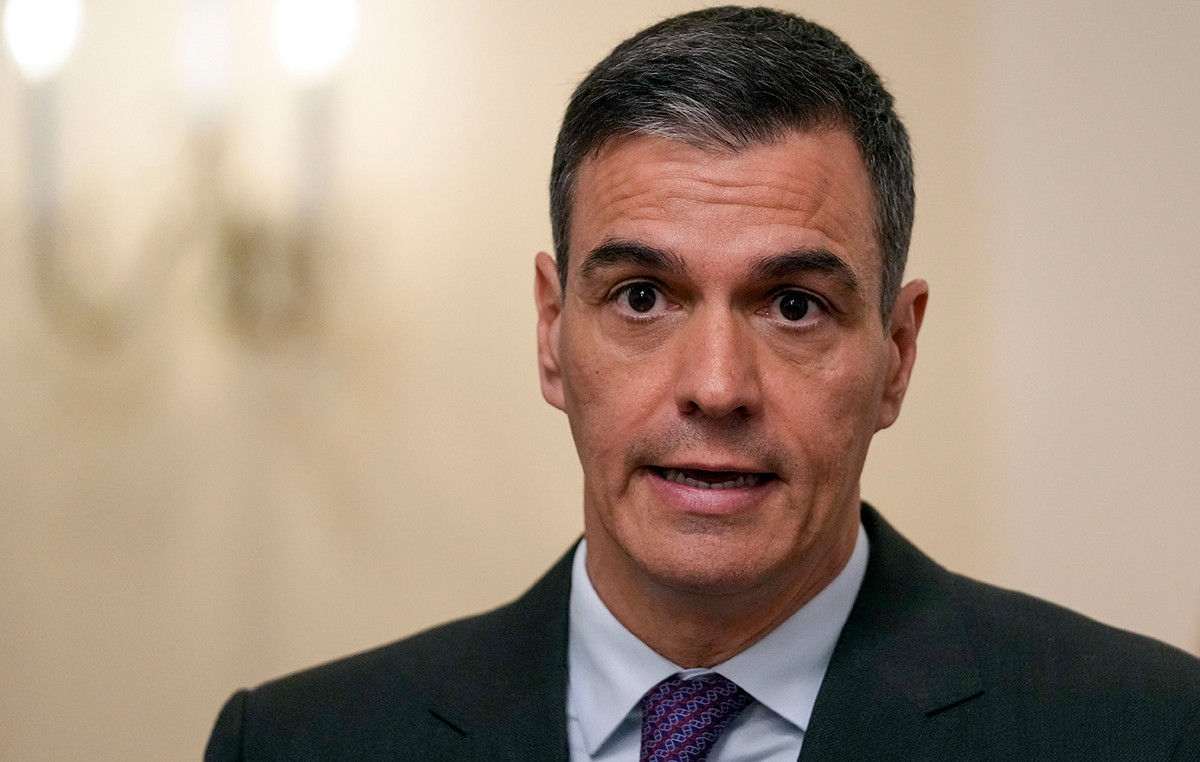The National Cancer Institute (Inca) estimates, for the three-year period from 2023 to 2025, more than 45,000 cases of bowel cancer per annum. According to Inca, around 20 new cases are expected for every 100,000 men and 21 for every 100,000 women.
In this week, the CNN Vital Signs warns about the risks of bowel cancer, also called colorectal cancer. The rerun of the program presented by cardiologist Roberto Kalil will air this Saturday (29), at 7:15 pm.
According to doctor Raul Cutait, digestive tract surgeon at Hospital Sírio-Libanês, in São Paulo, colorectal cancer is the second most common cancer in women in Brazil, after breast cancer. In addition, it is also the second most frequent in men, after prostate cancer. (see interview in the video above ).
Cutait warns of the increase in cases in recent years in Brazil and in the world and says that the problem is related to food. According to experts, a diet poor in vegetables and rich in red meat and alcohol can trigger this type of cancer.
There are also patients who have Lynch Syndrome, resulting from a genetic alteration that increases the risk of developing tumors in the colon and rectum.
The program features an interview with physician Angelita Habr-Gama, coloproctologist and digestive tract surgeon at Hospital Alemão Oswaldo Cruz, in São Paulo. The specialist created the “Watch & Wait” protocol, which means “watch and wait”, used for tumors that can disappear (clinically and radiologically) with treatment and without the need for surgery.
“Today, with new chemotherapy drugs and much more developed radiotherapy, we can reach up to 60% of patients who avoid surgery. And avoiding colostomy surgery is a glory,” says Angelita. According to the doctor, who is a reference in the area, cases of bowel cancer have a good prognosis when diagnosed early.
The team of CNN followed colorectal cancer surgeries at Hospital Sírio-Libanês with physician Raul Cutait, and at Hospital AC Camargo with physician Samuel Aguiar. The episode also shows how the laparoscopy procedure takes place with the help of ultra-modern robots.
genetic factors
Geneticist and doctor of oncology, Maria Isabel Achatz, explains the genetic cases of cancer and how the tests available to detect the disease work.
“Today we know that 10% of all cases of colorectal cancer can be hereditary. The great advance is to carry out an additional test called immunohistochemistry, which finds an indication of heredity”.
According to the expert, mapping family members is an important screening strategy. “What is known today is that in families where heredity is found, the reduction in mortality is effective”, he concludes.
Prevention
The development of bowel cancer is strongly impacted by diet. Fiber-poor diets and excessive consumption of ultra-processed foods contribute to the onset of the disease.
According to the National Cancer Institute (Inca), the main factors related to a higher risk of developing bowel cancer are: age equal to or above 50 years, excess body weight and unhealthy diet.
The most common signs and symptoms are: presence of blood in the stool; frequent abdominal pain and cramps lasting more than 30 days; change in intestinal rhythm of recent onset – when an individual who had normal intestinal functioning starts to have diarrhea or constipation -; rapid and unintentional weight loss; anaemia, tiredness and weakness.
The main guidelines for preventing colorectal cancer include lifestyle changes.
Regular practice of physical activity is recommended, and guidance for adults and seniors to perform at least 150 minutes of exercise a week, preferably spread over different days and times, which may involve aerobic activities (walking, running, swimming, cycling, etc.) , strengthening muscles and bones and stretching.
Maintaining an adequate weight, making natural or minimally processed foods the basis of the diet, reducing the amount of oils, fats, salt and sugar and limiting the consumption of processed foods also help to prevent the development of the disease.
Source: CNN Brasil
I am an experienced journalist and writer with a career in the news industry. My focus is on covering Top News stories for World Stock Market, where I provide comprehensive analysis and commentary on markets around the world. I have expertise in writing both long-form articles and shorter pieces that deliver timely, relevant updates to readers.







